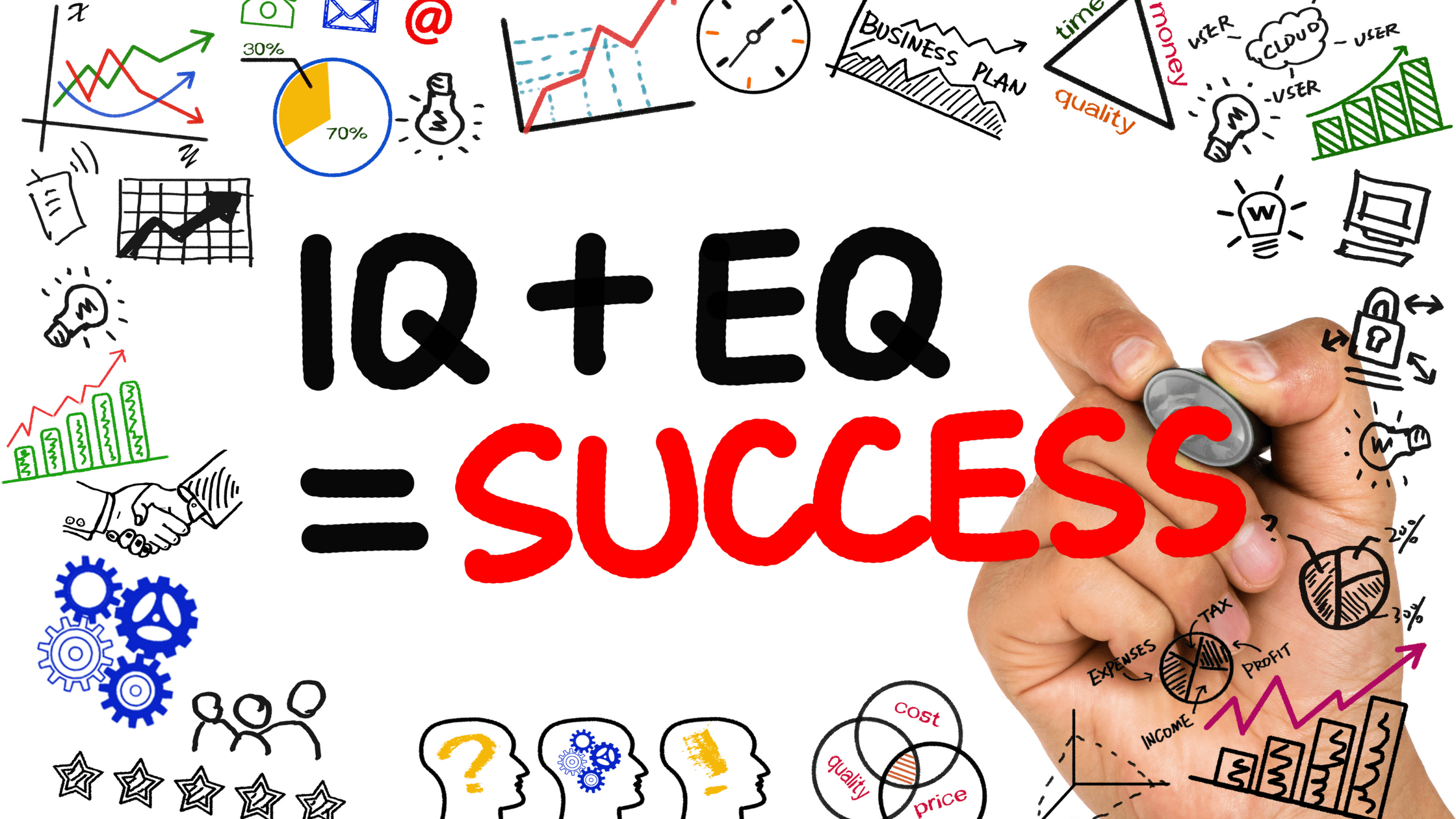Learn How You Can Translate Emotional Intelligence into Success.

“When awareness is brought to an emotion, power is brought to your life.” – Tara Meyer Robson
In order to be successful, it’s critical for us to develop a high level of emotional intelligence. What does that translate into in real life?
This means being aware of and managing one’s own emotions, as well as being able to understand and respond effectively to the emotions of others. Those with strong emotional intelligence skills are typically better able to manage relationships, communicate effectively, and handle stress. While some people are naturally more emotionally intelligent than others, it is possible for anyone to develop these skills with practice.
Defining emotional intelligence
Emotional intelligence is the capacity to be aware of and manage one’s own emotions, and the emotions of others. It also refers to the ability to perceive, control, and evaluate emotions. Some researchers suggest that emotional intelligence can be learned and strengthened, while others claim it’s an inborn characteristic.
It is a relatively new concept, having only been coined in the early 1990s, but it has quickly gained traction as a key predictor of success, both personal and professional.
Those with high emotional intelligence can navigate through life’s challenges with relative ease and are better equipped to build strong relationships.
BENEFITS OF EMOTIONAL INTELLIGENCE
In our fast-paced, constantly-connected world, it’s more important than ever to have a strong emotional intelligence. Emotional intelligence is the ability to be aware and understand your own emotions and the emotions of others. It’s about being able to regulate your emotions, respond effectively to emotions in others, and create positive relationships.
There are many benefits that come with having high emotional intelligence. One benefit is that individuals who are emotionally intelligent tend to be more successful in their careers. They’re able to develop a better understanding of their own strengths and weaknesses, as well as those of the people they work with. This allows them to create more productive and efficient teams.
Another benefit of being emotionally intelligent is that it leads to healthier relationships. Individuals who are good at managing their emotions tend to be better communicators. They’re able to understand the feelings of others and respond in a way that leads to positive outcomes.
Effects of Low Emotional Intelligence
People with lower emotional intelligence might find it harder to accurately identify emotions, recognize how other people feel, or express and honor emotional needs.
It’s true that these tendencies could create problems within relationships. Having lower emotional intelligence doesn’t make you a bad person, though. You can work to develop your emotional intelligence by managing your stress and emotions.

5 components of emotional intelligence at work
Emotional intelligence in the workplace can have a lot of benefits aside from a positive work environment.
1. Self Awareness
The ability to focus on yourself and how your actions, thoughts, or emotions do or don’t align with your internal standards. You can use self-awareness at work to appreciate how you are viewed by your colleagues.
Anyone who is dedicated to self-improvement, personal development or the higher goal of spiritual growth needs to actively seek to understand oneself. This is because only when one understands where one lacks, can he or she focus their efforts on what to improve.
Self-awareness is the capacity that a person has to introspect. It includes gaining an understanding of and insight into one’s strengths, qualities, weaknesses, defects, ideas, thoughts, beliefs, ideals, responses, reactions, attitude, emotions and motivations. Thus introspection also includes assessing how one is perceived by others and how others are impacted based on one’s behavior, responses and conduct.
2. Self Regulation
The ability to monitor and manage your energy states, emotions, thoughts, and behaviors in ways that are acceptable and produce positive results such as well-being, loving relationships, and learning. Controlling your emotions on the job by adjusting your feelings to keep a professional appearance in front of your colleagues.
It is how we deal with stressors and as such, lays the foundation for all other activity. Developing this ability requires self-awareness, emotional intelligence, efficient filtering of sensory stimulation, coping effectively with stress, relating well to others, and sustaining focus.
3. Motivation
Motivation is the process that initiates, guides, and maintains goal-oriented behaviors. It is what helps you lose extra weight, for instance, or pushes you to get that promotion at work. In short, motivation causes you to act in a way that gets you closer to your goals.
In everyday usage, the term “motivation” is frequently used to describe why a person does something. It is the driving force behind human actions. Motivation includes the biological, emotional, social, and cognitive forces that activate human behavior.
4. Empathy
The ability to emotionally understand what other people feel, see things from their point of view, and imagine yourself in their place. Essentially, it is putting yourself in someone else’s position and feeling what they are feeling. For instance, when a coworker is showing signs of dismay, you can react with empathy to ease a situation that might have become worse.
Empathy leads to:
- stronger, more meaningful relationships
- success in the workplace
- better health and quality of life
90% of top performers in the workplace have high emotional intelligence! The more people can understand their own thoughts, feelings and emotions the more they can understand someone else’s. When we become better listeners, we become better people.
5. Social Skills
Social skills is a very broad term, but it is also used quite specifically in the context of Emotional Intelligence.
In emotional intelligence the term “social skills” refers to the skills needed to handle and influence other people’s emotions effectively.
This may sound like manipulation, but it can actually be as simple as understanding that smiling at people makes them smile back, and can therefore make them feel much more positive.
How to improve your emotional intelligence
If you’re looking to improve your emotional intelligence, there are a few things you can do. First, try to be more aware of your own emotions. Pay attention to how you’re feeling and why. This will help you better understand yourself and manage your emotions more effectively.
Second, try to be more aware of the emotions of others. Pay attention to the cues they’re giving off and try to understand how they’re feeling. This will help you better interact with them and build stronger relationships.
Finally, seek a professional in managing your emotions. There are tons of webinars for you to choose from. You can start free with it by signing up for a master workshop on neuro-performance which also includes tips on training the mind to banish burnout for good.
Key takeaways on emotional intelligence
In conclusion, emotional intelligence is a critical life skill that everyone should work to develop. It can help you in your personal life by making you more self-aware and therefore able to manage your emotions better. It can also help you in your professional life, as it can make you better at managing difficult conversations, handling conflict, and networking. If you want to improve your emotional intelligence, there are many resources available to help you, including books, articles, and courses.
Awareness of our emotions – cognitive, behavioral, and biological responses to the situations and environment in which we find ourselves – provides a great deal of self-knowledge and valuable input into the goals we set and how to work toward them.
Action Steps to Cultivate
We help you learn all of this and more in our landmark Neuro-performance program, activate your secret genius.
This 10-week transformation benefits and impacts every aspect of your life: career, daily performance, health, wellness, cognitive function, habits, relationships, energy, personal and spiritual growth and beyond. That’s because unlike anything else in the market, we focus on the brain- The brain being the root of all change.
And because genius comes in all flavors and types, unlocking yours is about learning, knowing, and transforming into your highest self. To see how it works. Come check out our new content on our home-page for some amazing videos that will inspire and change your life.
If you enjoyed this article, we'd love for you to forward it to your community! It helps us to help more people. Use the social/mail icons to share it with anyone in 2 seconds.
